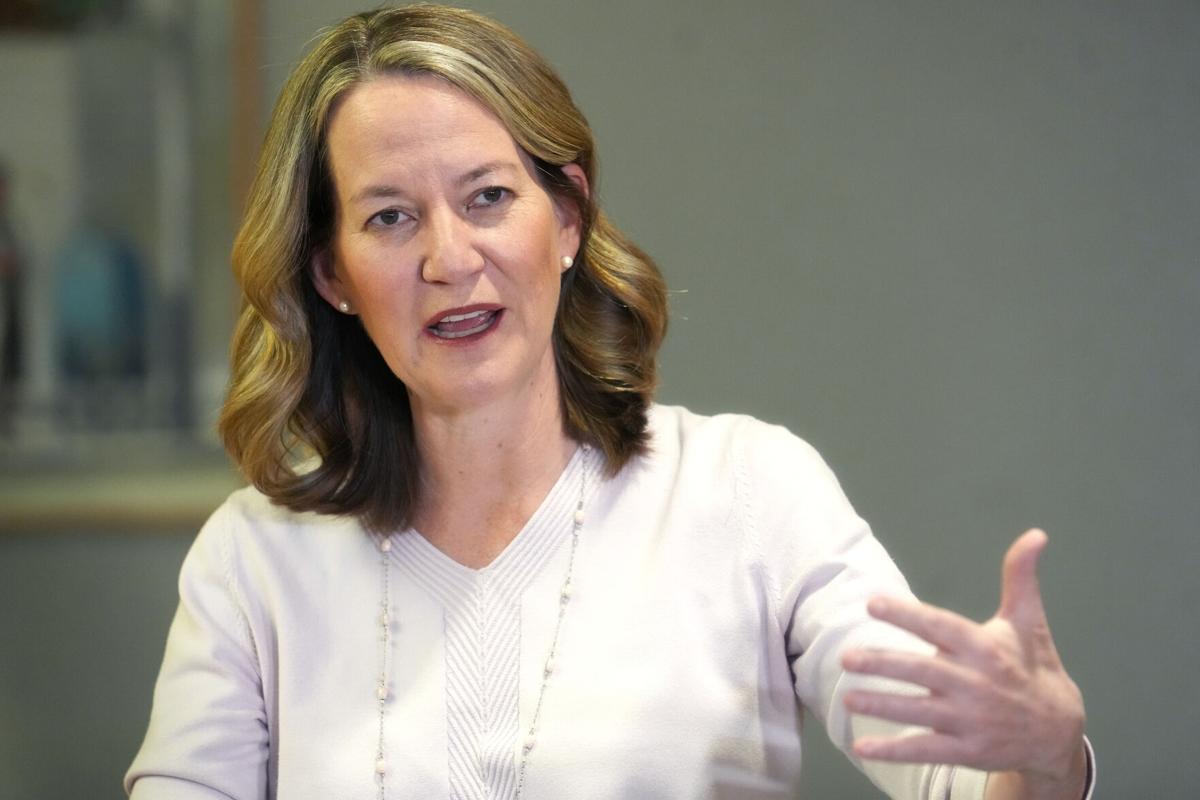PHOENIX — Arizonans’ right to abortion could turn on the question of whether anyone still has legal standing to argue the procedure should be all but outlawed as it was in territorial days.
In new legal filings, Attorney General Kris Mayes told the Arizona Supreme Court that the decision by her office not to defend a state law dating back to 1864 leaves no one with legal standing to do so.
If the justices agree, that would leave in place a 2022 state law that allows but regulates abortion through the first 15 weeks of pregnancy. It would also remove any risk that doctors now performing the procedure within 15 weeks would end up in prison.
Whether the Arizona justices agree depends on how they view actions that go back more than five decades.
In 1971, when the state’s abortion ban was first challenged by Planned Parenthood, a trial judge in Pima County appointed a “guardian ad litem’’ empowered to represent the legal interests of the fetus of a woman identified only as “Jane Roe’’ who was a plaintiff in the case and wanted to terminate her pregnancy. The judge said the guardian also could represent other fetuses “similarly situated’’ at the time.
Arizona courts refused to overturn the law, leaving in place a statute that dates to territorial days making abortion a crime except to save the life of the mother.
All that became moot when the U.S. Supreme Court issued Roe v. Wade in 1973 saying women had a constitutional right to terminate a pregnancy.
But the Arizona case was resurrected last year after the high court overturned the 1973 decision, once again giving each state permission to establish its own abortion restrictions.
Republican Mark Brnovich, Arizona’s attorney general at the time, then asked a judge here to reinstate the territorial-era ban, whose only exception is to save the life of the mother. That judge also agreed to allow abortion opponent Dr. Eric Hazelrigg, medical director of Choices Pregnancy Center, to serve in the guardian position.
Mayes, a Democrat, on taking office in January, reversed the state’s official stance. That leaves only Hazelrigg to argue that Arizona should reinstate the old law.
Now attorneys for Mayes want the justices to remove him from the case, saying he is not a “proper party’’ and that his appointment as guardian “was without legal basis.’’
If the justices grant the motion, that would leave no one to argue that Arizona should once again outlaw virtually all abortions. That in turn would cement in place last year’s law specifically allowing abortions through 15 weeks.
2022 actions
The Republican-controlled Legislature voted last year, before Roe was overturned, to enact the law outlawing abortions up to 15 weeks.
They did so because of a prediction by GOP lawmakers that the U.S. Supreme Court would uphold a similar Mississippi law. They wanted to have something virtually identical to Mississippi’s in place.
Instead, the nation’s high court went farther, voiding Roe v. Wade entirely. That led Brnovich to argue the original territorial-era restriction was restored.
But the Arizona Court of Appeals ruled last year that would mean ignoring the more recent 15-week statute. So the judges ruled doctors can perform the procedure through 15 weeks, with the older law — and its prison term — applying only to abortion providers who are not medical professionals.
That sent the case to the state Supreme Court.
But Mayes, now attorney general, says the old law, and Brnovich’s argument seeking its reinstatement, is not legally defensible.
For the moment, that leaves only Hazelrigg seeking to overturn the appellate court ruling and go back to the territorial-era law, which is why Mayes is asking the justices to dismiss him from the case.
‘No plaintiff’
There are statutes allowing a judge to appoint someone as a guardian for minors for legal purposes in certain limited cases. These include cases involving termination of parental rights, where a minor is seeking to be legally “emancipated,’’ and when a pregnant minor asks a court to allow her to bypass state laws requiring parental consent for an abortion.
But here, Mayes’ attorneys argue, Hazelrigg is seeking to represent “an undefined class of hypothetical and dissimilar fetuses.’’
They argue the only reason the judge in the original 1971 case appointed a guardian was because of “Jane Roe’’ seeking to terminate her pregnancy.
“Now, there is no plaintiff seeking an abortion, and therefore no individual fetus or ‘similarly situated’ fetuses for petitioner to represent,’’ the attorneys for Mayes are telling the justices. “How can there be a guardian when there are no wards?’’
They also say it’s not clear which fetuses Hazelrigg purports to represent.
“Does his appointment cover all fetuses that exist in Arizona right now?’’ the state’s lawyers ask. “Fetuses at all gestational stages, or only after a certain point? What about fetuses that would be born with diseases that guarantee an early and extremely painful death?’’
Attorneys for Planned Parenthood Arizona, also trying to preserve the 15-week law, did not go quite so far in asking the Supreme Court to knock Hazelrigg out of the legal ring. But they told the justices they should ignore his bid to have them once again outlaw virtually all abortions.
“If Dr. Hazelrigg believes it is good policy to subject licensed physicians to criminal prosecution for performing any abortion, even those performed before 15 weeks, he may seek to achieve such policy through the legislative process and not by judicial fiat,’’ they wrote.
Of course, all that presumes the current Republican-led Legislature would be willing to restore the law to the way it was prior to 1973. Even if it did, the odds of Gov. Katie Hobbs, a Democrat who took office in January, signing such a measure are virtually nil.
The court has not set a date to consider the issue, which means for now, abortions are allowed through 15 weeks.
Get your morning recap of today's local news and read the full stories here: http://tucne.ws/morning





